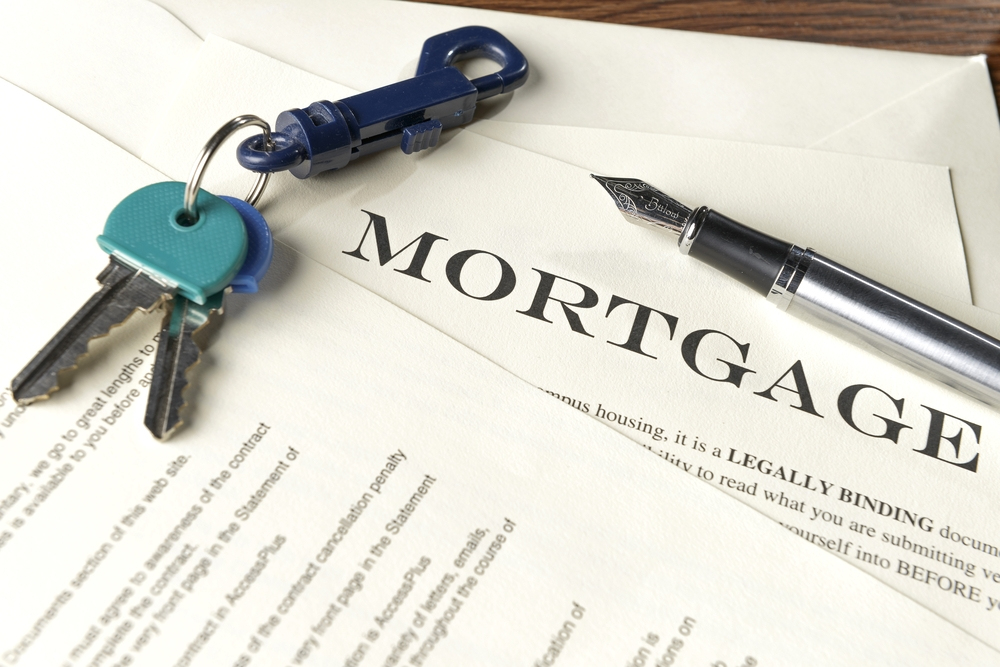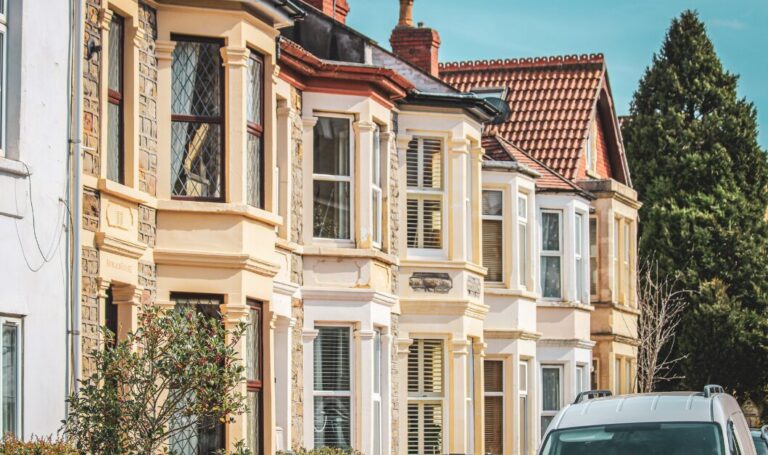There are some important pros and cons to consider before you take a long-term mortgage.
While UK mortgage terms have increased as property prices have grown, taking out a mortgage for 30 or even 40 years is a big step.
In this guide, we explain what a long-term mortgage is and look in more detail at the advantages and disadvantages you’ll need to consider.
What is a mortgage term?
The ‘term’ is the length of time you have to completely pay down your mortgage.
If you have a capital repayment mortgage, you’ll have nothing left to pay at the end of your term.
But if you have an interest-only mortgage, only the interest will be paid down at the end of the term, and you’ll still have the capital outstanding.
Of course, if you’re able to overpay your mortgage or you use a lump sum from inheritance, you’ll pay it off before the end of your term.
What is a mortgage deal?
Your mortgage deal refers to the rate of interest you’ll pay for a set period of time – usually between two and five years, but sometimes longer.
For example, a three-year fixed rate mortgage at 4.60% would be classed as a mortgage ‘deal’.
Once your mortgage deal expires, you’ll move on to your lender’s Standard Variable Rate (SVR) unless you decide to remortgage on to another deal.
What is a long-term mortgage?
Traditionally, the most common term for a mortgage was 25 years, so anything longer than that would have been considered a ‘long-term’ mortgage.
However, the average length of a mortgage in the UK is now 30 years, according to research.
Mortgage terms of 30 years are now commonplace, while 35-year mortgages and even 40-year mortgages are available from some lenders.
As well as mortgage terms getting longer, long-term mortgage deals are now more common, too, with fixed rate deals lasting 10 years or more available from many lenders.
How long can you get a mortgage for?
The mortgage term you can get will largely depend on your age when applying for your mortgage.
Most lenders have an age cap which sets the maximum age someone can be when they come to the end of a mortgage term.
This means a 40-year mortgage will usually only be suitable for someone younger than 30 who is a first-time buyer.
For example, if you’re 30 years old when you apply for a 40-year mortgage term, you’ll be 70 when that term comes to an end and potentially in retirement.
Some lenders may consider an application like this, but they’ll undertake checks on things like your pension to ensure your mortgage remains affordable when you’re no longer working.
What is the best length of term for a mortgage?
The best length of term of a mortgage will depend on your personal circumstances – both now and in the future.
A longer mortgage term may mean your monthly repayments are smaller, making your mortgage more affordable.
However, you’ll pay more interest over a long mortgage term and your loan won’t be paid down as quickly.
You’ll also build equity in your home more slowly, as you’ll be paying off less mortgage capital each month due to your payments being lower.
What type of mortgage is best for long-term?
If you’re considering taking out a long-term mortgage deal, you’ll need to think about which type of mortgage suits your needs best:
Repayment and interest-only mortgages
When you pay down a repayment-style mortgage each month, you pay off some of the interest and some of the capital.
This means when you reach the end of your long-term mortgage, you’ll have paid down both the capital and interest and you’ll have nothing more to pay.
With an interest-only mortgage, however, you pay down only the interest over the term of the mortgage.
This means your monthly repayments will be lower, but at the end of the term the capital will still be outstanding, and you’ll need to pay it either through re-financing, using savings, or selling.
Long-term fixed rate deals
Traditionally, fixed rate mortgage deals were available for between two and five years.
However, fixed rate deals for 10 years and sometimes longer are becoming more and more common.
It’s even possible to get a fixed rate for the lifetime of your mortgage from some lenders.
That would mean you’d pay the same rate of interest for the duration of your mortgage term.
Lifetime tracker mortgages
Tracker mortgages are variable rate loans where the interest rate you pay can go up or down throughout your deal.
Most trackers follow the Bank of England base interest rate, so if the Bank rate goes up, your repayments go up and if it falls, your payments will also fall.
Most tracker mortgage deals last for between two and five years.
But some lenders offer a lifetime tracker that lasts for the duration of your mortgage term.
The pros of a long mortgage term
A longer mortgage term might suit you if you:
1. Want lower monthly repayments
Because your mortgage is stretched over a longer period of time, your monthly repayments will be lower.
As long as you qualify for a longer term with your lender, this can help make your household budget go further.
2. Need to pass lender affordability checks
If your lender is concerned your mortgage may not be affordable for you on a certain term, increasing your term may help you to pass their affordability checks.
However, you’d need to be young enough to fall under your lender’s maximum end-of-term age limit and consider if paying more interest over your longer term is right for you.
3. Want more flexibility
If your income fluctuates, perhaps because you’re self-employed, a longer mortgage term may give you more flexibility.
If your mortgage deal allows you to overpay without penalties, you may be able to do this when you have the money to do so, while paying lower repayments when things are tighter.
Overpaying your mortgage means you’ll pay it off faster, reducing the amount of interest over the term as a whole.
The cons of a long mortgage term
A longer mortgage term will mean:
1. You’ll pay more interest
Because your mortgage term is longer, you’ll pay more interest to your lender – sometimes thousands more.
This is offset slightly by cheaper monthly repayments, however.
2. Your mortgage will take longer to pay off
Unless you’re able to overpay or reduce your mortgage term later on, your loan will take longer to pay off.
This means you’ll be older when you become ‘mortgage free’.
3. You’ll build equity slower
If your monthly repayments are lower because of a longer mortgage term, you’ll be building equity in your home more slowly.
If you need to build equity faster in order to move again in the short-term, a long-term mortgage may not be right for you.
What happens at the end of a mortgage term?
At the end of your mortgage term:
- Your lender will send you a final redemption statement a few weeks before, with details of what you’ll need to pay in your final month
- Any credit on your mortgage will be refunded
- Your lender will release the charge they have on your property, meaning you own it 100%
Further reading…
- Your ultimate house viewing checklist
- How to buy a property in London
- The best property hotspots in London revealed
- How to save a deposit when you’re a first-time buyer
Still have questions? Contact your local Ellis & Co branch today.







